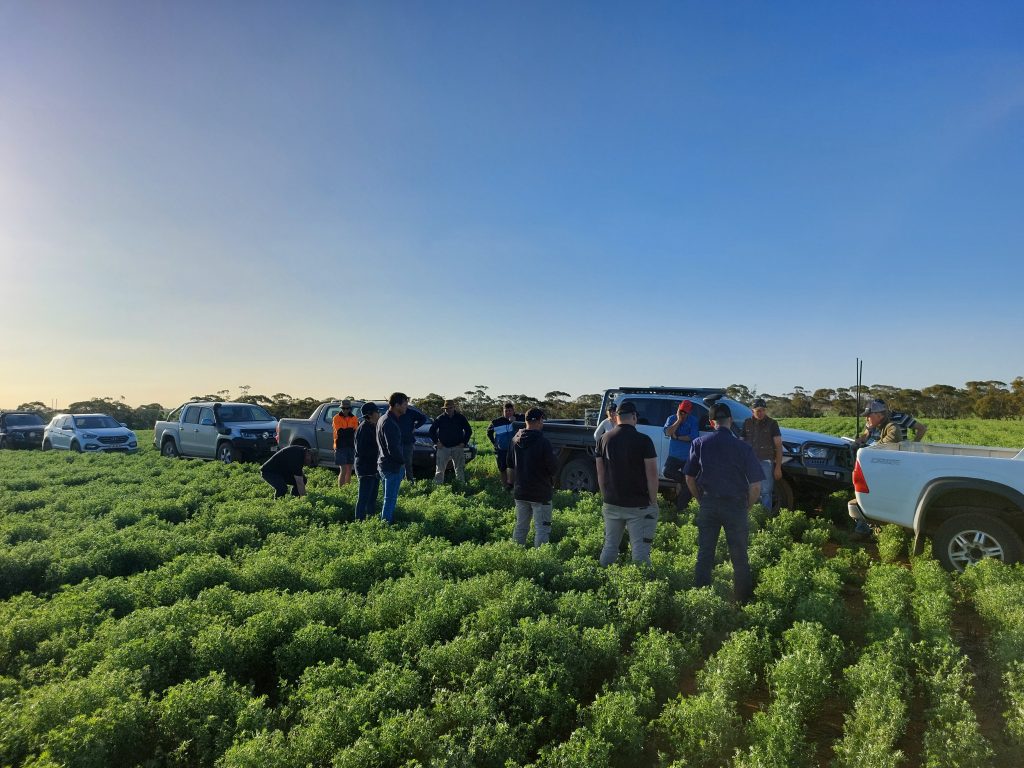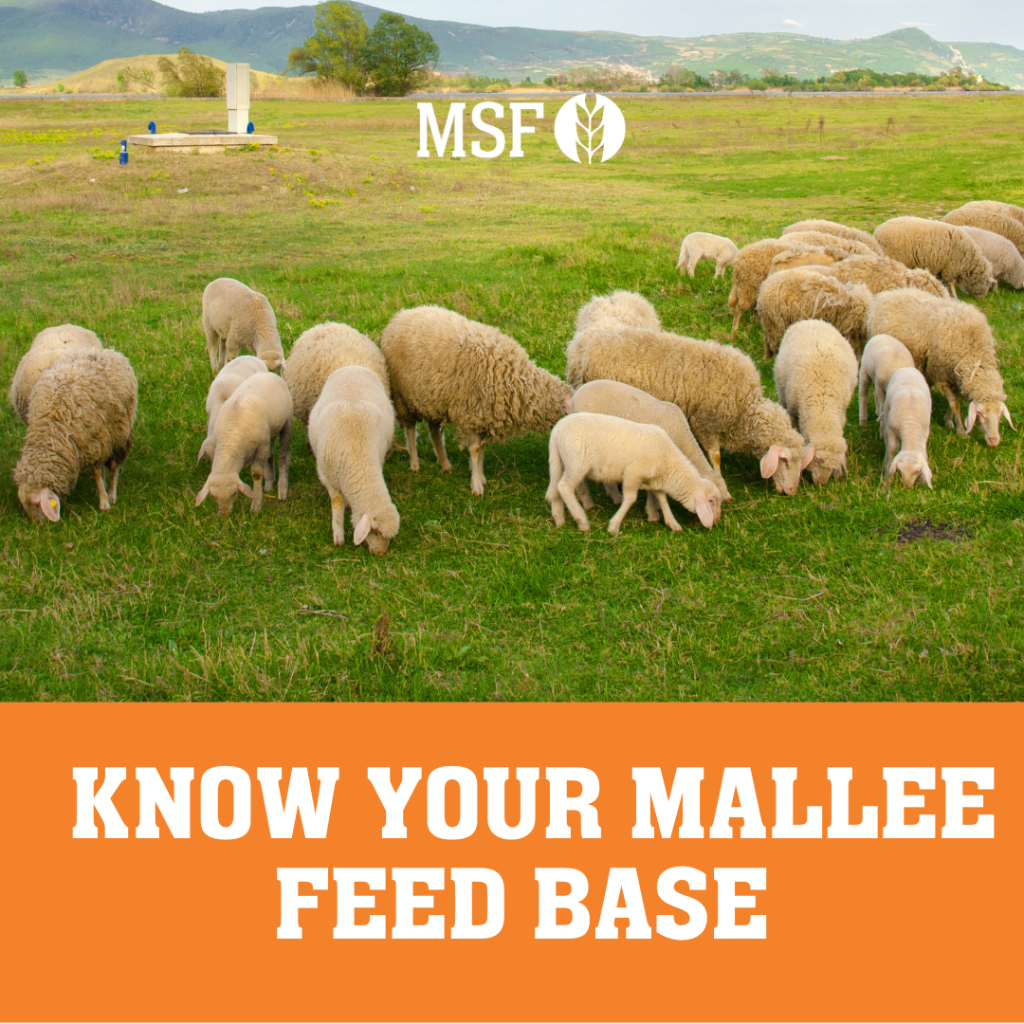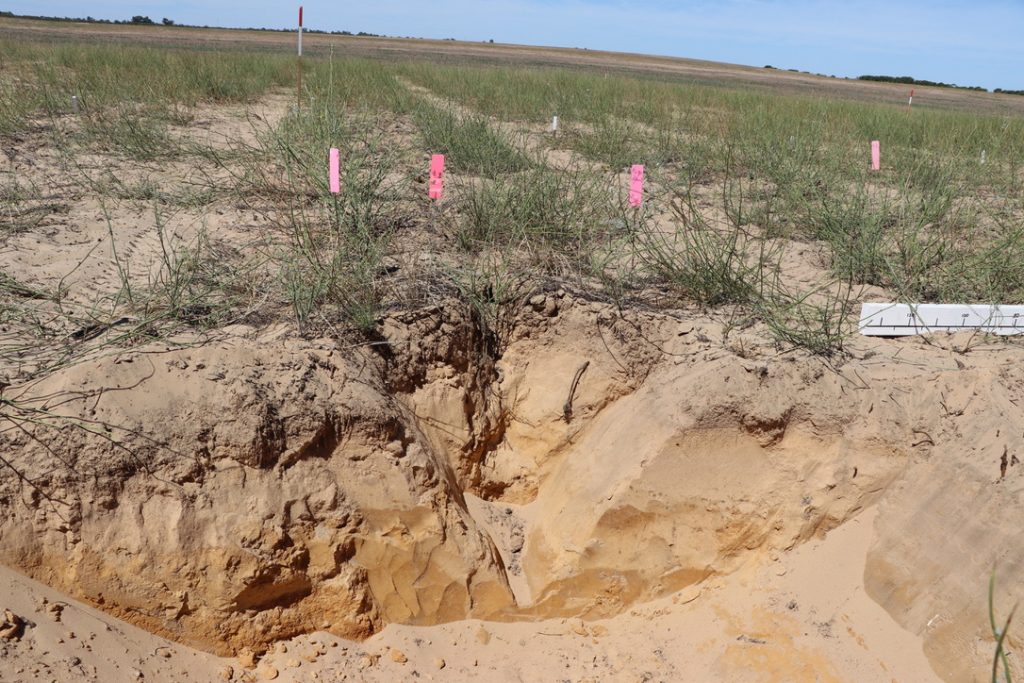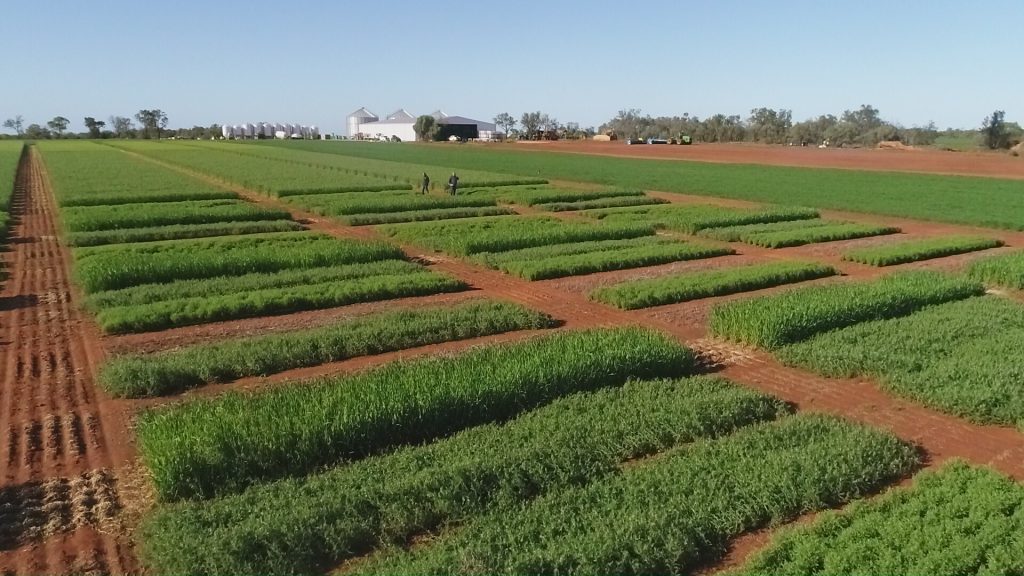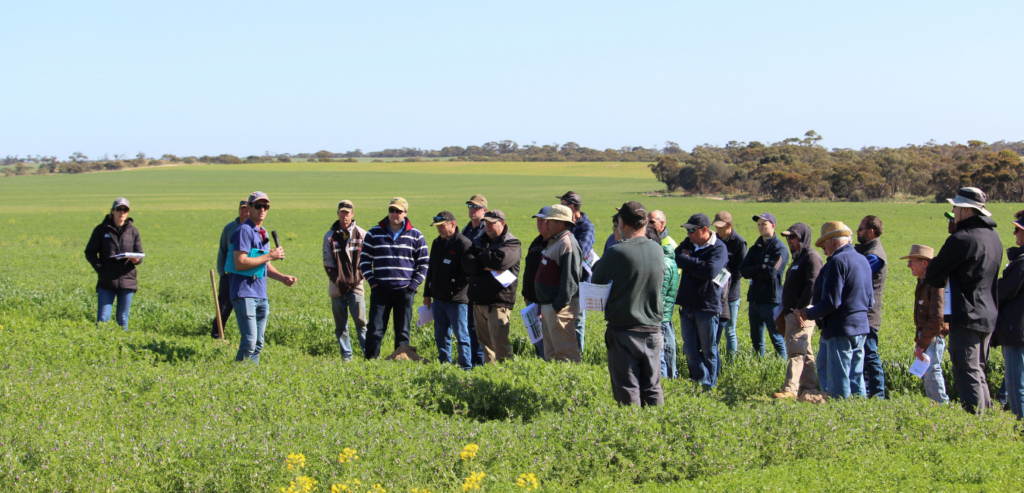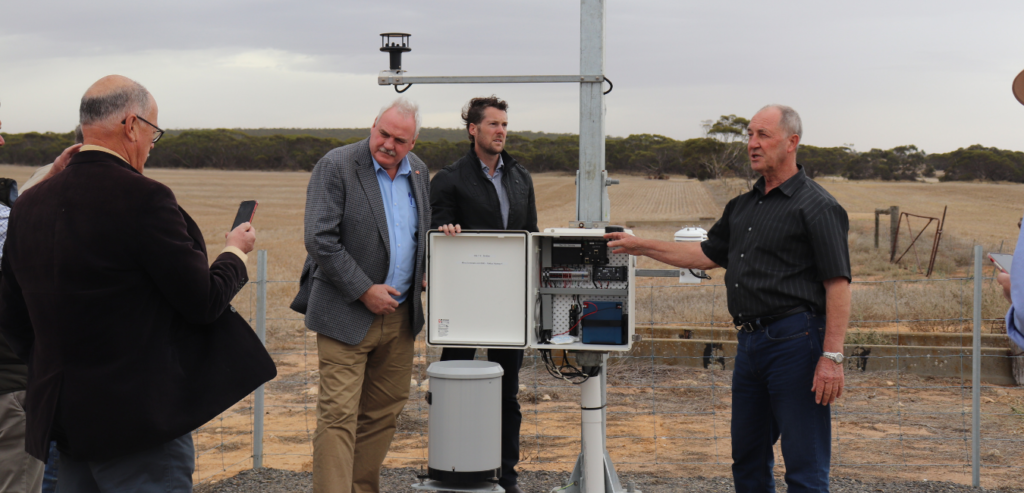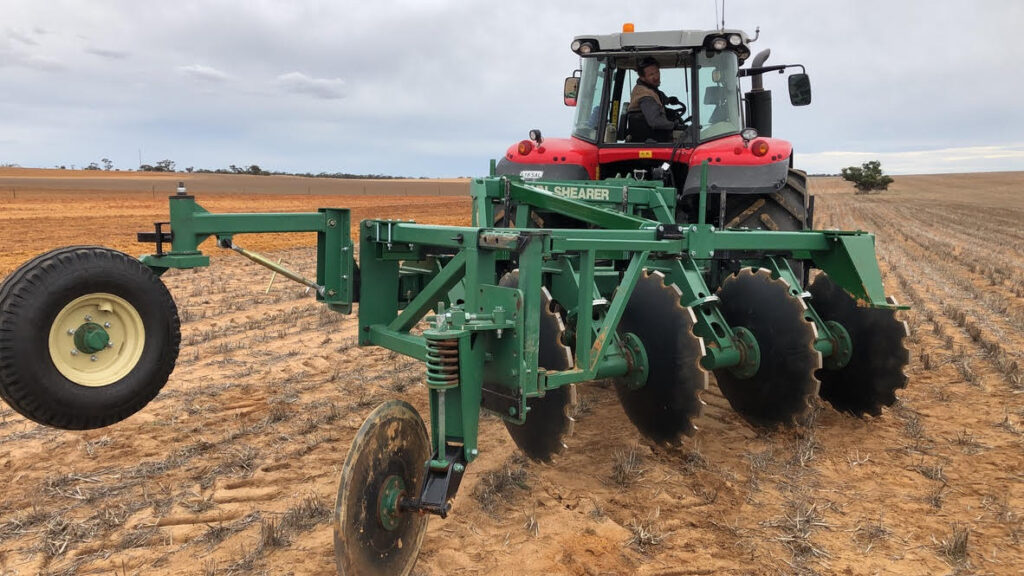This project has been funded to help Mallee farmers tackle wind erosion with practical ways of improving and maintaining groundcover on erosion-prone soils.
There are two main themes in the project:
1. Promoting cropping practices that improve crop performance and leave more ground cover
2. Promoting forage shrubs and livestock containment designs to broaden the livestock feedbase and protect groundcover on vulnerable soils.
